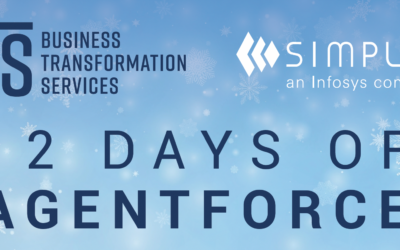In 2023, more and more people joined the bandwagon and took to wearable technology as a way to (literally) put their healthcare in their own hands. While exciting and often gamified, this technology is also raising patient and consumer concerns about data security and privacy—and not without reason. Cyberattacks are targeting this data, leading many to wonder if the healthcare industry—whether medtech or hospital care and providers—is modernized enough to handle their most sensitive insights. But what trends and investments will take healthcare there?
For healthcare in 2023, we’ve been following critical trends that will shape both patient experience and stakeholder investment decisions, namely, the drive to a single data platform (can anyone say CDP?), patient experience coordination on collaboration platforms like Slack, and the rise of artificial intelligence solutions in the space. At the year’s end, we want to look at how these trends progressed and what that means for healthcare leaders.
A single data platform (hello, CDP!)
Whether you’re a patient, a payer, or a practitioner… the all for a single data platform in healthcare has been strong for years and only got louder this year. With hospital and patient data under attack like never before (88+ million people have been affected by healthcare data breaches this year, a number far larger than any year prior), the fear and skepticism of the industry at large rise exponentially. As patients become more concerned about their information privacy or more frustrated at data duplication paperwork during healthcare experiences, the cry for more consolidated data rises. Streamlining data in healthcare doesn’t have to mean cutting critical information, however. Making deliberate efforts to put all consumer data on one platform (a CDP) with tight, secure integrations to necessary third parties helps all parties involved in the healthcare process extract data more efficiently and leverage it for more personalized experiences that don’t threaten patient security.
Patient experience coordination over Slack
Hand in hand with data concerns is the drive towards better patient experience coordination or case management. Collaboration platforms like Slack picked up immense traction during the pandemic that has yet to decline. We’ve seen more clients seek automated collaboration platforms to integrate with their systems for case management or care coordination. The benefit of Slack for this patient experience coordination is its tight, seamless integration with the larger Salesforce ecosystem many healthcare organizations are already using, making it easier to surface the necessary case data, care notifications, and analytics. We expect to see more organizations leverage this tool to go to market with care products, medicines, and more with greater efficiency.
AI expansion
The hype around AI seemingly exploded in 2023, for all industries. But healthcare may be in the unique position of actually leveraging some of the promises of AI in their daily operations far sooner than others, as experts predict AI will have the greatest impact on healthcare compared to other sectors. Elementary AI use cases are already in place via chatbots and analytics to better automate patient self-service and decision-making. But healthcare providers and medtech leaders spent 2023 preparing for more embedded AI opportunities, such as doctor’s notes that write themselves or remote-controlled surgeries by doctors miles away. To make the most out of these AI solutions, however, healthcare decision-makers must invest in the data maturity and foundation to support them.
To prepare your healthcare organization for the onslaught of innovations in the coming years, you must start with a robust, comprehensive data strategy centered around one platform. Simplus can help set up this foundation with Salesforce tools built out with the security and regulatory compliance you need. Let’s start talking today.















0 Comments